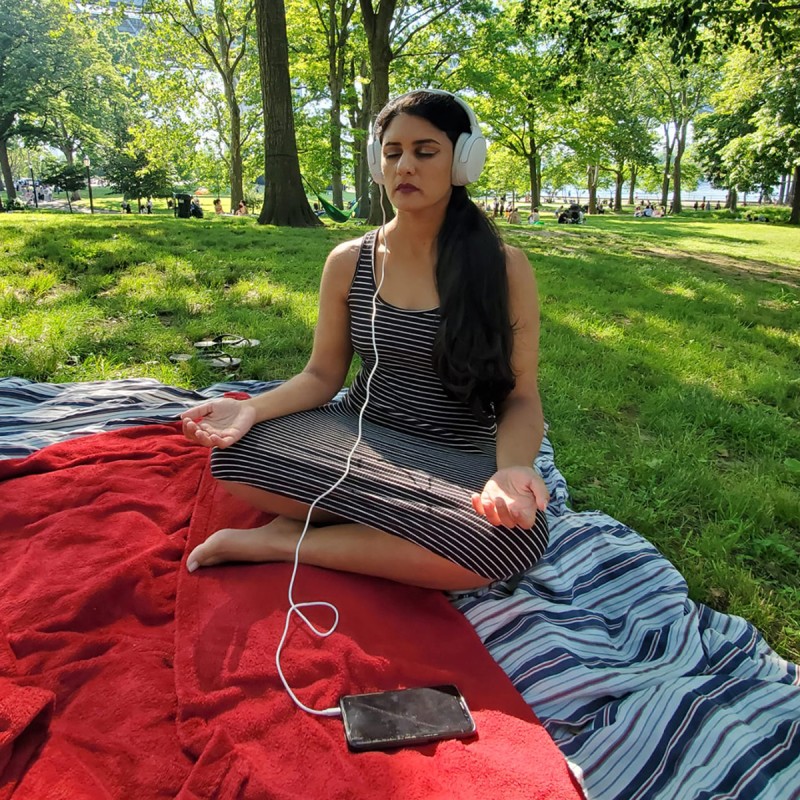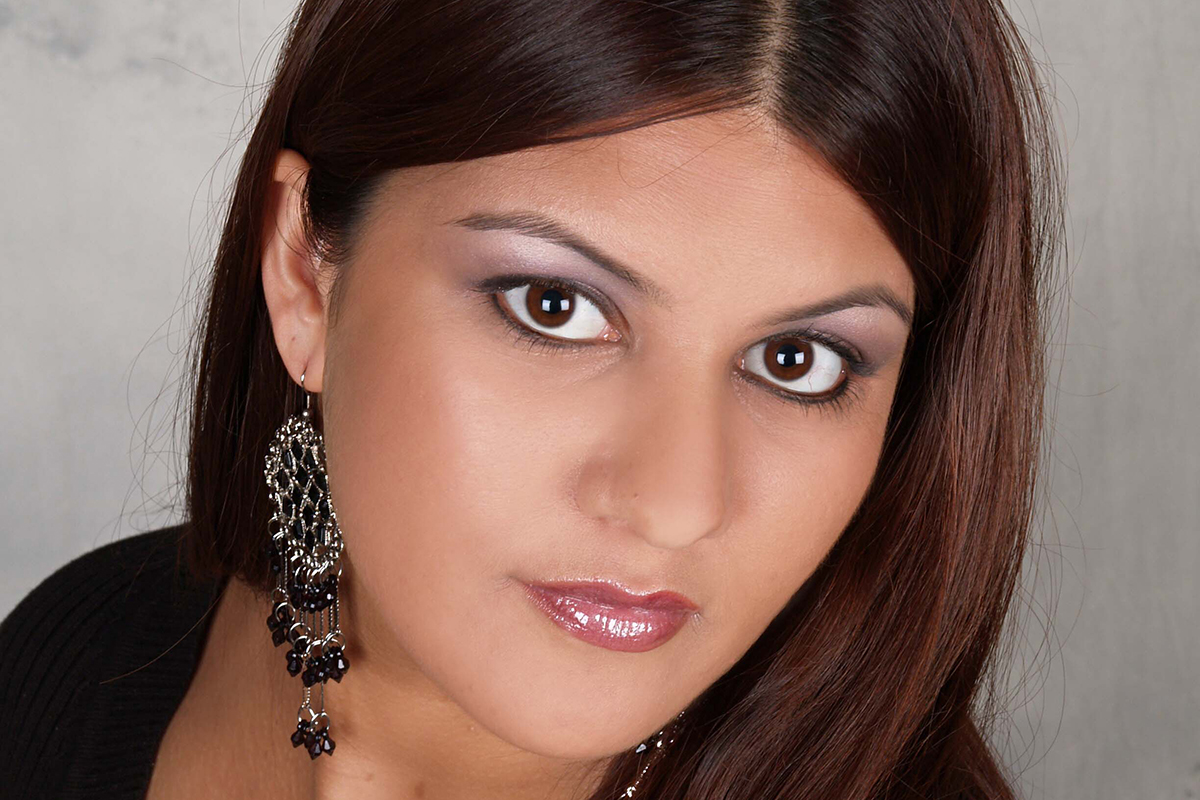
Having stage 4 breast cancer and focusing on your treatment is hard enough.
But cancer can also be expensive. Where do you turn when even the cost of healthy food is too much?
When Natasha Bhalla was diagnosed with hormone receptor-positive breast cancer, she worried about how to pay for groceries, among many other things. She didn’t have a personal computer for digital access to her treatment plan and to telemedicine appointments with her doctors.
Like approximately half of people with cancer, Natasha, 44, is coping with the financial toxicity — or economic burdens — associated with a cancer diagnosis and treatment. That proportion is even higher for patients younger than 40, those whose cancer has spread, and people who are Black or Hispanic.
From Caretaker to Being Cared For
Cancer upended Natasha’s life. She is a natural caretaker. A first-generation American living in Queens, New York, Natasha spends much of her time with her family, including her parents and younger sister.

Natasha’s parents, who moved when they were 18 from New Delhi, India, to New York to seek better opportunities, are retired and now live in New Jersey.
Natasha, who has worked for a company in the beauty industry for 17 years, helps her parents with finances, which makes her own medical bills even more challenging. And now it’s Natasha who needs care.
“Culturally, I was taught to be very independent,” she says. “So asking for help has been a learning thing for me.”
Finding Comfort in MSK
Natasha is being treated by breast oncologist Serena Wong, MD, after being diagnosed in 2015 at another institution.
When she became a patient at Memorial Sloan Kettering Cancer Center (MSK), Natasha’s care team recognized her financial burdens right away and connected her with MSK’s Immigrant Health and Cancer Disparities (IHCD) program, which encompasses many services. Led by Francesca Gany, MD, MS, the program’s mission is to eliminate inequalities in cancer care among immigrants and underserved populations.
Natasha met Jana Abumusallam, a research project associate from the program, during an appointment at MSK Monmouth, and the two have developed a special relationship.
“Jana has gone out of her way to be so helpful,” Natasha says. “She’s amazing.”
Closing the Gap on Inequalities in Health and Cancer
“We want to help people with whatever they need, whether it be food, interpretation services, or tech,” Jana says. “When people worry about basic necessities, they can’t focus on medical treatment.”
After the patient describes their needs, they’re connected with the right resources through a program called the Integrated Cancer Care Access Network (ICCAN). Natasha was supported with these services:
Telemedicine
Not everyone has a computer or smart device to connect with providers, view lab results, and fill out key health portal information on MSK MyChart. Patients also need to attend telemedicine appointments.
Through the Access to Telehealth for Underserved Breast Cancer Patients (AcT) program, Natasha got a laptop so she can have those key telemedicine visits on a personal device, rather than a work computer.
“It’s uncomfortable sometimes to use my work laptop for that kind of stuff,” she says.
Healthy Food
As any person with cancer knows, a healthy diet is essential. Natasha tries to eat an organic and plant-based diet, which can be expensive. To help, IHCD has provided nutritious food through its Food to Overcome Outcome Disparities (FOOD) program, which includes 14 pantries and partnerships with several community organizations.
“Our goal is to provide access to nutritious and culturally appropriate food and provide a patients’ choices as much as we can,” says Claudia Ayash, MPH, Associate Director of IHCD. For example, people can choose their favorite type of greens, beans, or milk.
During the worst of the pandemic, Jana personally delivered food to Natasha from the pantry — just one example of care teams going above and beyond to reach patients in need.
Applying for Grants
The service also helps connect people to outside groups to apply for financial grants.
Jana recognizes that patients need help knowing what resources might be available to them. “We let people know eligibility criteria and can help submit grants on their behalf,” she says.
Natasha wants to share what she’s learned with others. She often tells people diagnosed with cancer to be proactive about doing research and ask a lot of questions.
“Look into all these resources,” she says. “The hospital can offer so many things that you may not even be aware of.”
Paying It Forward
Today, Natasha is staying positive and taking things day by day. Her current treatment plan for breast cancer, which metastasized (or spread) to the bones and lungs, includes two monthly injections: leuprolide (Lupron), which suppresses the ovaries to shut down estrogen production, and denosumab (Xgeva), which strengthens the bones and prevents fractures. In addition, Natasha takes the oral drug therapies Palbociclib (Ibrance®) and Letrozole (Femara).
She does experience some side effects, including joint pain and stiffness, but she manages them with her sense of humor. “Hot flashes are the worst — the worst — symptom,” she says with a laugh.
Having support for all her needs — not just the medical ones — has given Natasha peace of mind. She practices meditation for one to two hours a day.
“That’s helped me keep my optimism and positivity,” she says. “Meditating brings a lot of peace.”
So does being a caretaker. Natasha now conducts monthly online classes in health and wellness for a community she’s built.
“They feel like it really helps them,” she says. “It’s nice for me to give back in some way.”

